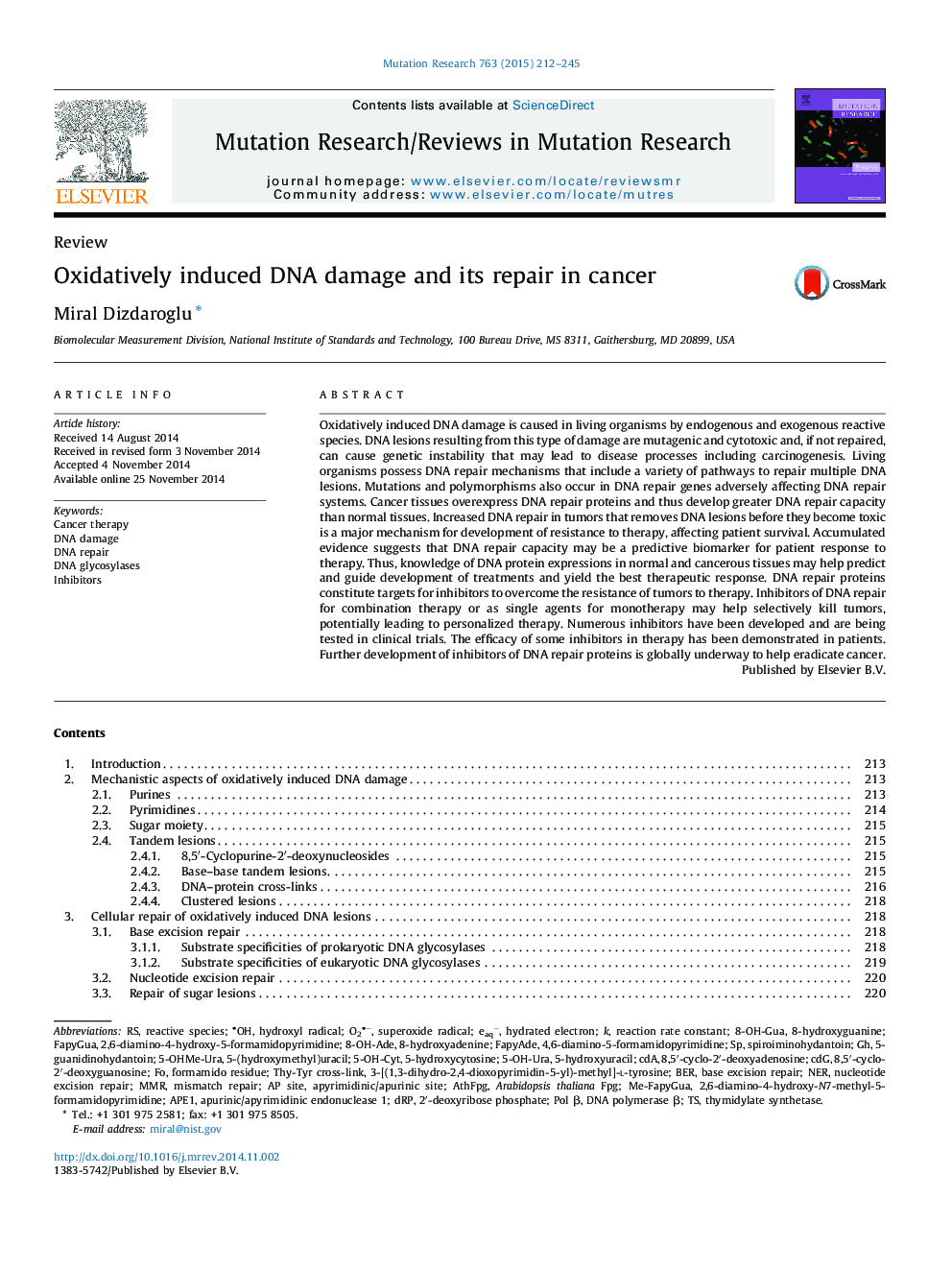| کد مقاله | کد نشریه | سال انتشار | مقاله انگلیسی | نسخه تمام متن |
|---|---|---|---|---|
| 2149606 | 1548751 | 2015 | 34 صفحه PDF | دانلود رایگان |

Oxidatively induced DNA damage is caused in living organisms by endogenous and exogenous reactive species. DNA lesions resulting from this type of damage are mutagenic and cytotoxic and, if not repaired, can cause genetic instability that may lead to disease processes including carcinogenesis. Living organisms possess DNA repair mechanisms that include a variety of pathways to repair multiple DNA lesions. Mutations and polymorphisms also occur in DNA repair genes adversely affecting DNA repair systems. Cancer tissues overexpress DNA repair proteins and thus develop greater DNA repair capacity than normal tissues. Increased DNA repair in tumors that removes DNA lesions before they become toxic is a major mechanism for development of resistance to therapy, affecting patient survival. Accumulated evidence suggests that DNA repair capacity may be a predictive biomarker for patient response to therapy. Thus, knowledge of DNA protein expressions in normal and cancerous tissues may help predict and guide development of treatments and yield the best therapeutic response. DNA repair proteins constitute targets for inhibitors to overcome the resistance of tumors to therapy. Inhibitors of DNA repair for combination therapy or as single agents for monotherapy may help selectively kill tumors, potentially leading to personalized therapy. Numerous inhibitors have been developed and are being tested in clinical trials. The efficacy of some inhibitors in therapy has been demonstrated in patients. Further development of inhibitors of DNA repair proteins is globally underway to help eradicate cancer.
Journal: Mutation Research/Reviews in Mutation Research - Volume 763, January–March 2015, Pages 212–245